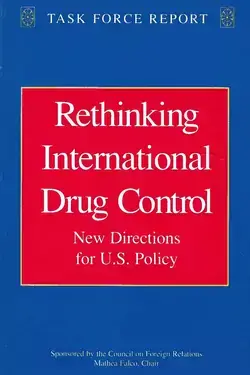
Rethinking International Drug Control
New Directions for U.S. Policy

- Task Force Report
- Analysis and policy prescriptions of major foreign policy issues facing the United States, developed through private deliberations among a diverse and distinguished group of experts.
Despite the growing severity of the drug abuse problem in the United States and evidence that supply-control programs are ineffective, the supply-side approach to drug control has endured. This task force examined interdiction and source country programs in terms of their impact on the domestic availability of the targeted illicit drugs. The group’s report, Rethinking International Drug Control, urged policymakers to reassess the effectiveness of interdiction and the certification process, and to consider adopting a strategy that focuses on strengthening democratic institutions at home and abroad, developing multilateral drug-control efforts, and reducing domestic demand.
Among the Task Force’s specific recommendations for U.S. policy:
More on:
- Place increased emphasis on combating the growing power of transnational drug cartels that are undermining political, financial, and judicial institutions.
- Reassess both the emphasis on interdiction and source county crop reduction—which over the past twenty years has done little more than rearrange the map of drug problems and trafficking—and certification—which undermines cooperation with other countries.
- Acknowledge the minimal impact of supply-reduction on drug abuse within the United States, and increase focus on demand-reduction, including prevention, education, treatment, and community law enforcement.
More on:
 Online Store
Online Store